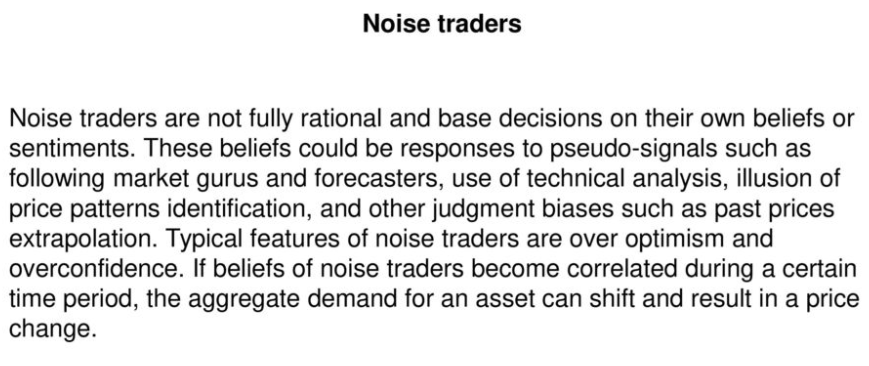
Considering noise traders as agents with unpredictable beliefs, we show that in an imperfectly competitive market with risk averse investors, noise traders may earn higher expected utility than rational investors. This happens when, by deviating from the Nash equilibrium strategy, noise traders hurt rational investors more than themselves. It follows that the willingness of arbitrageurs to exploit noise traders’ misperceptions is lower relative to a perfectly competitive economy. This result reinforces the theory that noise trading may explain closed‐end fund discounts and small firms’ returns, since these markets are less competitive than the market for large firms’ stock.